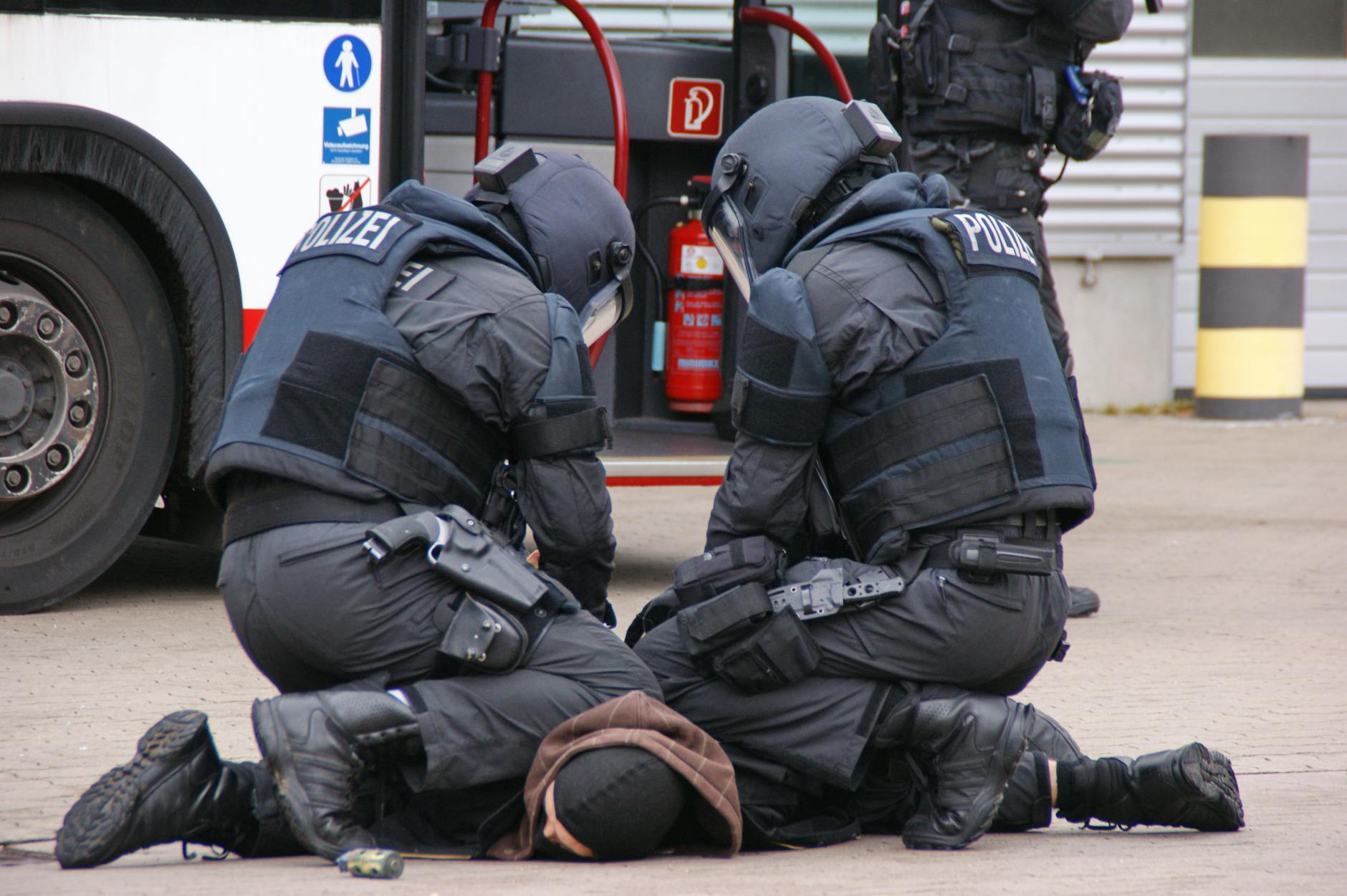How to Ensure Compliance with Australia's Police Check Requirements

Understanding Police Checks
Grasping the concept of a police check is crucial if you're stepping into the corporate world, as Freya Collins is attempting to do. A national police check NSW is essentially a background verification process that assesses an individual's criminal history. This can be a vital part of the onboarding process for many organisations, especially those involved in sensitive sectors or requiring high trust levels.
What is a Police Check?
A police check, also known as a criminal background check, is a tool used to safeguard businesses by providing insights into an individual's legal history. It can include details of any past convictions or legal proceedings. For tech entrepreneurs and developers in places like Adelaide's Lot Fourteen, integrating such checks into their hiring processes can help ensure a trustworthy team is onboarded.
Reasons You Might Need One
There are multiple scenarios where a police check could be necessary. HR personnel often require them for roles that involve financial responsibilities or access to sensitive data. Similarly, freelancers who take on high-profile corporate contracts might be requested to provide a police clearance nsw to assure clients of their dependability.
Types of Checks Available
Police checks can differ based on jurisdiction, such as state or federal levels, which is critical to distinguish. While a national police check covers convictions across all Australian states, a state-specific check focuses solely on that region's records. For those hoping to work across various states or industries, understanding these distinctions can be critical—whether you're a startup in Adelaide's North Terrace or part of tech events at the Adelaide Convention Centre.
Steps to Obtain a Police Check
Obtaining a police check is a straightforward process, albeit one that requires careful attention to detail, especially when aligning with state-specific requirements. For those situated in Victoria, like Freya, understanding the nuances of a national police check victoria is crucial.
Gathering Necessary Documents
The first step involves collecting the essential documents. These typically include proof of identity, such as a driver’s licence or passport, and a recent utility bill to confirm your address. Keeping these documents in digital format can streamline the process, especially if you are accustomed to working in a digital environment.
Completing the Application Process
Once you have your documentation ready, the next phase is the application process. You can often complete this online, which is particularly convenient for those familiar with technology. It's important to fill out the form accurately to avoid complications. Incorporating automation tools, as seen in tech hubs like North Terrace, can help in ensuring a smooth and efficient application process by automatically flagging any discrepancies.
Submitting Your Application
Finally, submit your application through the official portal. Ensure that your documents are correctly scanned and uploaded. When operating from a vibrant tech locale like Adelaide Convention Centre, it’s wise to use secure networks to protect your information. By following these steps meticulously, tech-savvy professionals and HR personnel can efficiently obtain a national police certificate, meeting compliance and contractual obligations without unnecessary delays.
Navigating Legal Requirements
Federal vs. State Regulations
In Australia, managing national police check processes requires an understanding of both federal and state regulations. The federal level manages broader national guidelines, while states like New South Wales have their own specific requirements, as seen with police check nsw. It's vital to know whether the entity requesting the check needs a national or state-specific verification. Often, tech professionals and HR personnel I interact with at innovation hubs on North Terrace are keen to simplify these complexities through integration with existing systems. This is crucial for streamlining background checks and ensuring compliance across various regulatory landscapes.
Keeping Your Check Current
Maintaining up-to-date police checks can prevent unforeseen complications in project onboarding, particularly significant when dealing with high-profile clients. The lifespan of a police check varies, but most organisations prefer checks not older than 12 months. Incorporating reminders in your project management or HR systems can automate the renewal process, which is a strategy frequently discussed at tech events at the Adelaide Convention Centre. This proactive approach ensures seamless continuity and compliance in your workflow.
Privacy Considerations
One crucial aspect of integrating police checks into your process is respecting privacy concerns. Both personal data protection and ethical handling of sensitive information are paramount. Implementing software solutions that prioritise encryption and access control aligns perfectly with privacy protocols. For those involved with projects in tech startups around Lot Fourteen, these measures help meet both legal and client expectations, ensuring data is safeguarded without hindering operational efficiency.
Overcoming Common Challenges
Avoiding Application Errors
Navigating the complexities of a police check sa can sometimes be a daunting experience, especially for those unfamiliar with the process. Ensuring accuracy in your application is vital. Start by double-checking your details such as your full name, address, and identification numbers. If you are applying online, use platforms that guide you through the process with prompts and reminders. This can significantly reduce the chance of errors and prevent potential delays in receiving your Australian police check.
Handling Delays Efficiently
Encountering delays in your application process can be frustrating, particularly when awaiting important contracts. The reality is that delays can occur due to a variety of reasons, like increased demand or administrative backlogs. Keep communication lines open with the issuing body to stay updated on the status of your application. If you're part of a tech startup in areas like Lot Fourteen, consider using automated systems to track the progress of your application, minimising downtime and ensuring you can focus on core business activities.
What to Do If Issues Arise
Despite best efforts, issues can sometimes arise. Whether it's an error in your application or an unforeseen delay, a logical and composed approach is crucial. Contact the relevant authorities to clarify any discrepancies, and stay prepared with backup documentation to swiftly resolve queries. For those integrating police checks in their workflow, especially in tech hubs like North Terrace, implementing secure and reliable software solutions can help preempt and efficiently address any potential obstacles without impeding business operations.
FAQs
How Long Does It Take?
In most cases, obtaining a police check in Australia can take anywhere from a few hours to several business days, depending on the complexity of the check and the efficiency of the service provider. Organisations in Lot Fourteen or tech events at the Adelaide Convention Centre frequently encourage the use of electronic applications through secure portals for quicker processing. It's important to anticipate some variability; even in our digital age, delays might occur due to backlog or additional verification requirements. For HR personnel handling multiple applications, consider leveraging automation tools to track and manage these timelines effectively, ensuring compliance and workflow efficiency.
Can I Use It Across States?
In Australia, a national police check is generally valid across all states and territories. This makes it an invaluable asset for tech professionals who might be collaborating across various innovation hubs, such as those on North Terrace. However, some roles or organisations may still require state-specific checks, particularly when dealing with sensitive information or state-specific regulations. Always verify with the requesting party to confirm which type of check they require, especially when dealing with sectors that handle sensitive data protection.
What If My Check Has Errors?
Errors in your police check can be a disconcerting experience, but they are not insurmountable. Begin by contacting the service provider that processed your application to initiate a correction. If you're working in a fast-paced environment, like those endemic to tech startups in Adelaide, it’s prudent to document your communications and follow up regularly. Additionally, integrating a systematic approach to background checks in your personnel onboarding process can help mitigate such issues, ensuring any errors are swiftly identified and rectified.


